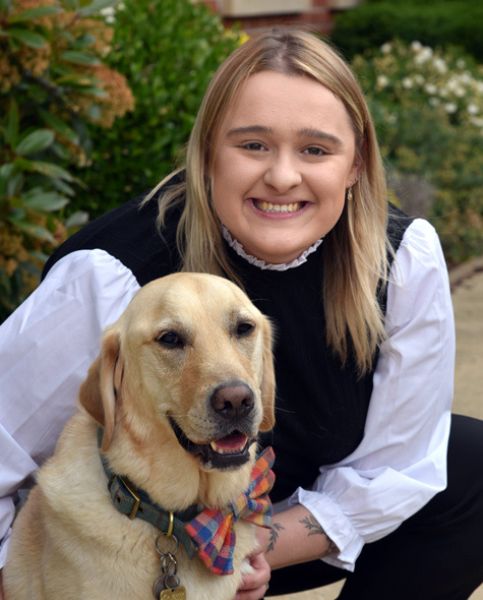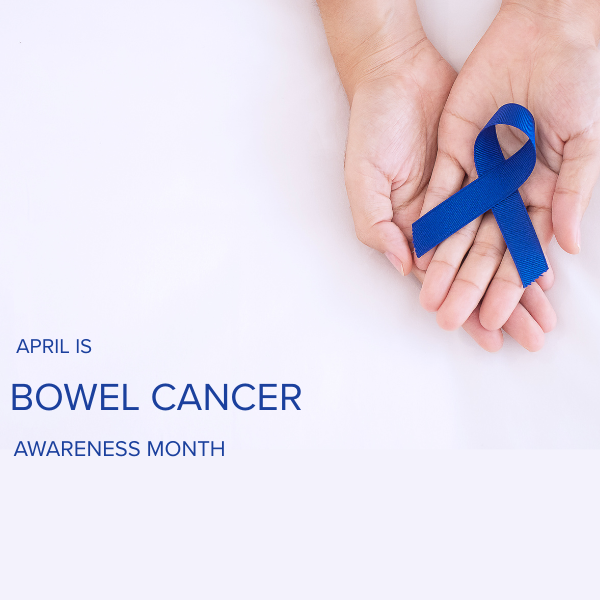International Caesarean Awareness Month
Mouth Cancer Negligence Solicitors & Oral Cancer Misdiagnosis Compensation Claims.
Receiving a diagnosis of oral cancer can be an incredibly worrying time for you and your family, particularly if the cancer is only discovered once it has reached an advanced stage.
As with the majority of cancers, if oral cancer is discovered early enough it is typically very treatable. However, in cases where the diagnosis was delayed and the cancer has progressed or spread to other parts of the body it can become difficult to treat effectively, and sadly, it may even be fatal.
When you visit your dentist for a check-up, not only should they be examining your teeth and gums, but they should also be looking for early indicators of oral cancer. Similarly, your GP should be checking for signs of oral cancer if you develop oral problems. If they notice any concerning symptoms during your check up, they owe you a duty of care to follow up on their discovery, usually by referring you to a specialist for further testing.
Some of the symptoms of oral cancer are the same or similar to those of other, less serious, oral conditions, such as mouth ulcers or canker sores. This therefore opens up the potential for oral cancer to be missed in the first instance by your dentist or GP, thus allowing the cancer to remain undetected for longer, allowing it to spread and progress, rendering it much more difficult to treat.
If you have experienced negligent medical care relating to oral cancer, and your symptoms have worsened as a result, you may be entitled to claim compensation. At Lanyon Bowdler we understand that money can’t negate what you have been through, but we will strive to ensure that you receive the maximum compensation available under the law.
If you think that you may have a claim, please don’t hesitate to get in touch and our experienced and friendly medical negligence team will be happy to discuss your case and offer advice and guidance.
What is Oral Cancer Negligence?
All medical professionals owe their patients a duty of care to ensure that they provide a reasonable level of care, and any kind of breach in that duty of care could constitute negligence. Your GP and dentist have a responsibility to screen for signs of any potentially serious health conditions, such as oral cancer. Additionally, your oncologist has a responsibility to order the correct diagnostic tests and treatment. A failure to uphold this duty of care could lead to your oral cancer spreading and progressing, thus making it more difficult to treat.
Some examples of oral cancer negligence include:
- Failure to carry out a proper examination of the patient’s mouth
- Failure to recognise the signs and symptoms of oral cancer
- Failure to refer the patient to a specialist when they present with symptoms
- Failure to order the appropriate diagnostic tests
- Failure to interpret the test results correctly
- Failure to prescribe the appropriate course of treatment
This does not represent an exhaustive list, and if you have received any kind of negligent care from a medical professional which has caused your condition to worsen, you may be entitled to make a claim for compensation. At Lanyon Bowdler, our specialist team of medical negligence solicitors have the knowledge, expertise, and empathy to handle your case. We strive to ensure you receive justice for the suffering you have endured, as well as ensuring you are adequately compensated and supported on your journey.
Our Oral Cancer Negligence Claims Expertise
Lanyon Bowdler is a specialist firm of Medical Negligence Solicitors with years of experience supporting clients in cancer negligence claims, including those involving brain cancer misdiagnosis. Our expertise in this field is recognised by national organisations, peers, and clients across the UK.
The Medical Negligence Team is recognised in Tier 1 for the West Midlands in the 2025 edition of the Legal 500, which states ‘The ‘efficient and pragmatic’ team at Lanyon Bowdler adopts a ’truly personal approach’ when dealing with cases involving birth, brain and fatal claims. It also frequently handles high-value cases relating to amputations and spinal injuries’.
Chambers UK 2025 rank the department in Band 1 for the Midlands and states ‘Lanyon Bowdler Solicitors has an impressive practice group with a growing presence across the West Midlands. The team offers specialist advice across the full gamut of clinical negligence mandates, with particular experience in cases of surgical error, delayed diagnosis and failure to supervise those at risk of suicide. The firm is additionally skilled in cases relating to post-surgical negligence, brain injury and fatal claims.’
Listen here to Beth Heath and a former colleague from the Clinical Negligence team talk about the delay in diagnosis of Cancer, using fictitious, but typical cases to illustrate the challenges people are facing.
Your Oral Cancer Compensation questions answered
Oral cancer, also known as mouth cancer, is a type of malignant tumour that can affect various parts of the mouth and oral cavity, including the tongue, cheeks, lips, salivary glands, throat, tonsils, and hard and soft palate.
There are two main categories of oral cancer:
- Those that develop in the oral cavity, such as the lips, gums, inside of the cheeks, roof and floor of the mouth, and the anterior two thirds of the tongue.
- Those that develop in the oropharynx, such as the tonsils, posterior third of the tongue, and the middle of the throat.
Oral cancer is one of the most common cancers in the UK, with around 6800 people being diagnosed with the condition each year, and the majority of cases are diagnosed in elderly people. With around 10,000 people dying from oral cancer annually, it claims more lives than testicular and cervical cancer combined. When oral cancer is diagnosed early, it has a good survival rate. However, the longer it is left undetected, the more chance it has to spread, and the harder it becomes to treat.
There are a number of different symptoms associated with oral cancer, and patients may experience just a couple, or many of them. The signs and symptoms to look out for include:
- A mouth ulcer that does not heal
- Unexplained lumps/swelling in the mouth or throat
- Unexplained pain in the mouth or throat
- Numbness or a tingling sensation in the mouth or throat
- Red or white patches in the soft tissue of the mouth or throat
- Unexplained loose teeth
- Difficulty with chewing and swallowing
- Facial palsy
- Double vision
- Nasal congestion
- Bleeding from the nose
- Changes to your voice/speech
- Unexplained weight loss
- Difficulty moving the jaw
This is not an exhaustive list, and if you notice anything different or unusual in your mouth, throat, or neck it is important to see your GP and/or dentist as soon as possible in order for a swift and accurate diagnosis to be made. When oral cancer is detected and treated early enough, it provides the best possible prognosis for the patient.
As with most cancers, it is not known exactly why some people develop oral cancer. However, there are a number of factors that have been identified as placing an individual at a higher risk of developing the disease. These risk factors include:
- Tobacco use – Smoking and chewing tobacco have been found to significantly increase the risk of developing oral cancer.
- Alcohol use – Individuals who are, or have been, heavy long term drinkers have a heightened risk, especially when paired with tobacco use.
- Betel quid use – Betel quid is a mixture comprising betel leaf and areca nut, amongst other ingredients, which is chewed in some parts of the world.
- Human papillomavirus (HPV) infection – HPV is a sexually transmitted infection which has been identified as increasing the risk of developing oral cancer.
- Poor oral hygiene – Without regular brushing, plaque can build up on the teeth and cause irritation and inflammation, potentially causing changes to the oral cells.
- Family history – If a close blood relative has had oral cancer this will increase the risk of you also developing the disease.
- Certain genetic conditions – There are some genetic syndromes, such as Fanconi anaemia, which may make you more susceptible to developing oral cancer.
- Age – The risk of developing oral cancer increases with age, with the majority of cases being diagnosed in people over the age of 45.
- Gender – Oral cancer is diagnosed more often in men than it is in women.
- Skin colour – Those with pale, fair skin are more likely to develop oral cancer than those who have darker skin.
- Certain occupations – Those who work in occupations exposed to certain chemicals, for example welders and painters, have an increased risk.
If you fall into any of these higher risk categories and you begin to exhibit any of the symptoms of mouth cancer, it is important to see your GP and/or dentist as soon as possible, and ensure that they know about the risk factors you possess. You are owed a duty of care to ensure that your symptoms are investigated in order to provide you with a prompt diagnosis and treatment. Failure to act quickly could constitute medical negligence, and you may be entitled to claim compensation if your oral cancer worsens due to a delay.
Having identified what some of the risk factors are for oral cancer, there are a number of ways in which you can minimise your risk and work towards preventing oral cancer from developing. Some of these methods include:
- Smoking cessation – As smoking represents the largest risk factor for oral cancer, it makes sense that stopping smoking is the best way to lower your risk.
- Drink responsibly – Heavy alcohol use is also a major risk factor for mouth cancer, so by reducing the amount of alcohol you consume, you also lower your risk.
- Good oral hygiene – Brushing your teeth twice a day, using mouthwash, and flossing regularly can help to keep your mouth healthy.
- Regular dental visits – When you visit your dentist for a check-up they will look for early signs of oral cancer, so regular visits are beneficial to your health.
- Eat healthily – A diet that is rich in vegetables, fruits, and whole grains can help to keep your body healthy and reduce your risk of developing mouth cancer.
- HPV vaccine – Contracting the HPV virus has been shown to increase your risk, but there is a vaccine available to help prevent the infection and thus lower your risk.
- Use SPF lip balm – The sun’s UV (ultraviolet) rays can cause damage to the cells in your lips, so an SPF lip balm can help to protect them.
- Learn your family history – Make yourself aware of any history of cancer in your bloodline so that you can relay this to your doctor.
Of course, it is not always entirely possible to prevent cancer, and if you begin to develop any of the symptoms of mouth cancer, it is important to speak to your doctor and/or dentist as soon as possible.
What our clients say.
Contact our Oral Cancer Negligence Solicitors
As highly skilled Mouth and Oral Cancer Negligence Solicitors, we work closely with medical experts to support our clients in compensation claims related to these conditions. Our specialist knowledge and partnerships have resulted in numerous successful claims for clinical negligence involving mouth cancer misdiagnosis, delayed treatment, and improper management.
By choosing Lanyon Bowdler, you can be confident in receiving the best legal expertise. Our medical negligence lawyers are widely recognised for successfully handling complex medical negligence claims. We are committed to providing exceptional client care and will work closely with you to achieve the best possible outcome, helping you regain control of your life.
We are a Law Firm in Wales, who has offices located in Shrewsbury, Telford, Oswestry, Ludlow, Hereford, Bromyard and Conwy, so are able to act for clients all over Shropshire, Herefordshire, Mid and North Wales and across the Midlands (including Wolverhampton & Birmingham). No matter where you live in England or Wales, our expert team is here to support your oral cancer compensation claim.
No matter where you live in England or Wales, our expert team is here to support your oral cancer compensation claim.
Meet the team.
Case studies.
Latest knowledge.
Our awards and accolades.
Get in touch.
"*" indicates required fields

 Back
Back





























 Blog
Blog



 Case Study
Case Study












